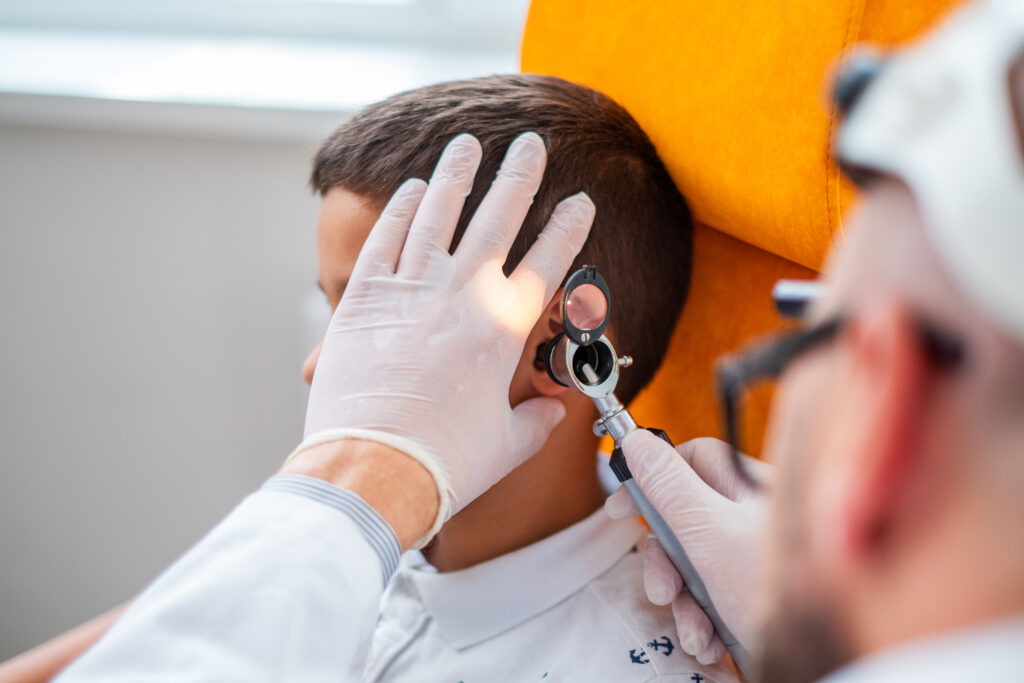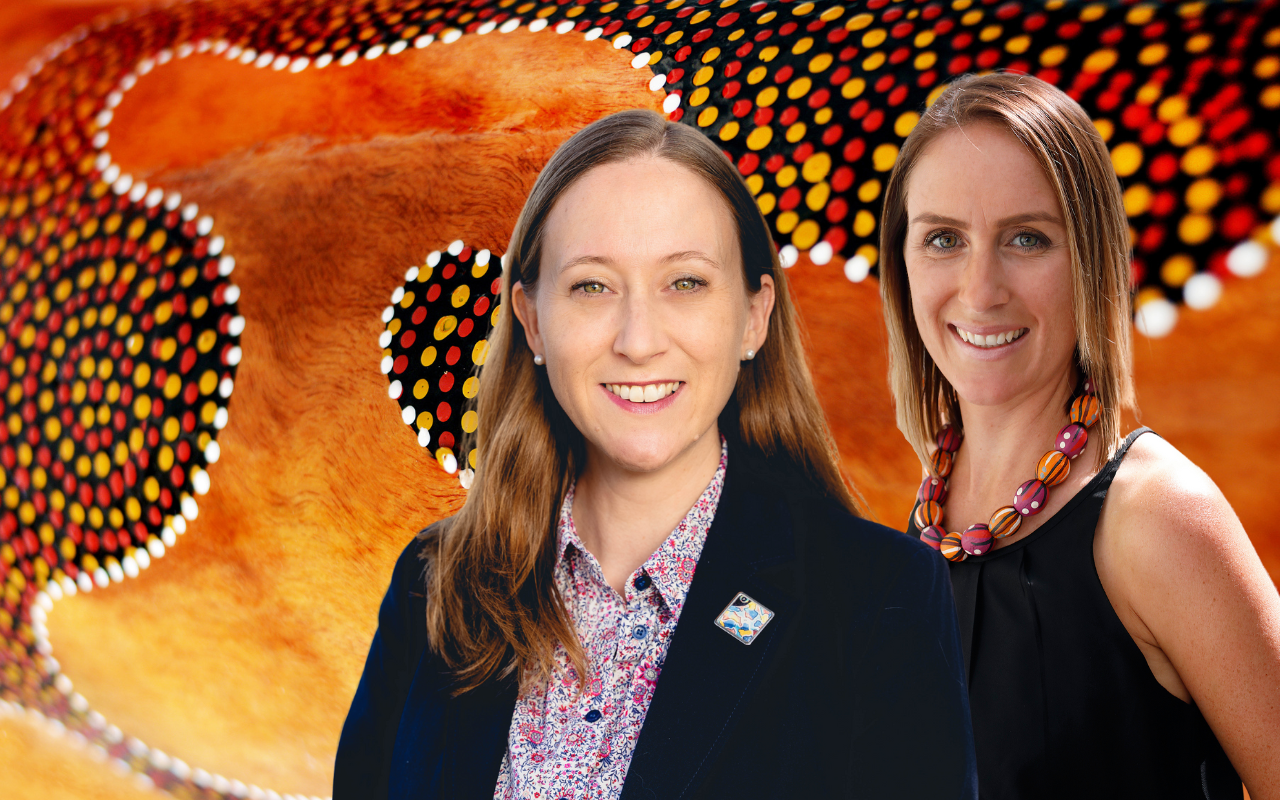Aboriginal and Torres Strait Islander leadership is essential in the design and delivery of culturally responsive health care, write Jacqueline Stephens and Courtney Ryder
Increasing awareness of the need for culturally appropriate care is vital.
In a recently published review, there was a notable lack of involvement of Indigenous health workers in the development and implementation of ear health screening programs for Indigenous peoples across Australia, Canada, New Zealand and the United States.
This research is a key example of a need for culturally appropriate and responsive health care that is delivered to and for Indigenous people.
Background
The United Nations Declaration on the Rights of Indigenous Peoples is clear in affirming the sovereign rights of Indigenous people to have complete autonomy, authority and respect to determine their health and wellbeing requirements. Even with this declaration, which is over a decade old, Aboriginal and Torres Strait Islander communities continue to be affected by persistent ongoing health inequities. We argue that decolonisation of health care must be prioritised, and approaches to achieve this must be grounded in Indigenous ways of knowing and doing if health inequities are to be eliminated.
As described by New Zealand author Linda Tuhiwai Smith, decolonisation removes power imbalances created by colonial occupation of Indigenous peoples’ lands by divestment of colonial power from health care systems and its structures.
This includes critiquing dominant biomedical knowledge paradigms and engaging in practices that prioritise marginalised knowledge. Best described by Foucault, marginal knowledge is a set of knowledge that has been discounted by the discipline (biomedical knowledge) as insufficient or inferior. Their re-engagement to critically appraise and broaden health and wellbeing conceptualisation is part of “resistance” in Indigenist approaches described by Rigney and Martin.
The Australian health care system continues to be underpinned by white possessive logic, which are the invisible and dominant colonial biomedical models of health care. Unfortunately, white possessive logic acts to reinforce dominant power structures by way of white privilege and institutional and interpersonal racism, which at a clinical level can alter diagnostic reasoning processes for patient care. However, steps can be taken to dismantle white possessive logic through embedding good leadership and working towards ensuring culturally responsive health care in the sector.
Indigenous health leadership in Australia
In Australia we have excellent and expanding leadership from a range of agencies, including the National Aboriginal Community Controlled Health Organisation (NACCHO), Indigenous Allied Health Australia (IAHA), the National Association of Aboriginal and Torres Strait Islander Health Workers and Practitioners (NAATSIHWP), and the Australian Indigenous Doctors’ Association (AIDA).
These agencies provide leadership and direction to, not only their members, but also to non-Indigenous health professionals working with Aboriginal and Torres Strait Islander communities, families and patients.
In addition, broader workforce strategies to prepare health care professionals to work alongside and in partnership with Aboriginal and Torres Strait Islander community members and Aboriginal and Torres Strait Islander health professionals effectively are a priority.
In fact, in 2022 the Australian Medical Council (AMC) began consultation to update their Accreditation Standards for Primary Medical Programs, resulting in endorsement of shared sovereignty and self-determination processes for developing Aboriginal and Torres Strait Islander health and cultural safety curricula and pedagogy in training programs.
Despite the increasingly recognised priority of Indigenous leadership, in the recently published review it was found that ear health programs are falling short of embedding leadership across all levels, from community-based health workers to governance mechanisms within programs addressing persistent health inequities. This reflects a broader issue where all too often Indigenous health education remain as an add-on through a “sheep-dip approach”, rather than fully integrated approaches which ensure that social and community accountability is considered at all levels.
Further, Aboriginal and Torres Strait Islander health workers and practitioners positioned in health care delivery are well placed to address many of the needs and priorities of their communities.
This workforce is a vital and reliable community resource critical to Aboriginal and Torres Strait Islander health and wellbeing and has a key leadership role in the implementation of strategies to address health inequities.
However, as stated by NAATSIHWP, “across mainstream Australia few would know, understand or recognise Aboriginal and Torres Strait Islander Health Workers and Health Practitioners as standalone professions”. Lack of recognition of the value and expertise of the Aboriginal health professional workforce needs to be redressed in health care delivery.

Indigenous ear health screening programs
As an example, the recently published review explored peer-reviewed articles and grey literature, published from 1 January 2000 until September 2021, reporting the design and implementation of ear health screening programs.
Only half of the publications included Indigenous authors and none of the publications included the involvement of Indigenous health workers’ perspectives in the design or leadership of the reported ear health programs, including none of the 33 publications from Australia.
This is despite almost all the articles clearly stating the critical role of Indigenous health workers in ear and hearing health.
Of the Australian publications, the majority performed poorly when assessed with an Aboriginal and Torres Strait Islander Quality Appraisal Tool, with only seven of 33 publications meeting at least 50% of the recommended criteria on ensure the validity and cultural safety of Indigenous health research.
Unacceptable situation
The persistent ear disease and hearing health inequity experienced by Aboriginal and Torres Strait Islander children in Australia is unacceptable.
Aboriginal and Torres Strait Islander children continue to experience earlier, more frequent, more prolonged and more complicated ear disease.
They also experience consequent hearing loss at greater numbers than other Australian children and, consistent with the inverse care law, are forced to contend with greater barriers to accessing the primary, secondary and tertiary services required to address this disparity.
Although many strategies have been implemented and tested, many have not addressed the complexity of the patient journey pathway for Aboriginal and Torres Strait Islander children. We know strategies have not worked because the high incidence of ear disease and hearing loss continues to persist.
There is an urgent need for proper engagement and Indigenous leadership in ear and hearing health research and programming.
A solution
Specialist teams involved in health service delivery and research can lead the way with actions that privilege Aboriginal and Torres Strait Islander perspectives.
They can also support Aboriginal and Torres Strait Islander leadership to provide the right care at the right time.
Such practices might include health care practitioners and researchers prioritising relationships with the Aboriginal and Torres Strait Islander communities on which they live and work, ensuring meaningful and ongoing partnerships with key community organisations.
This would also embed Aboriginal and Torres Strait Islander governance processes in health programs, such as for ear and hearing health.
This also requires a commitment across all levels of the health care system to investing in the capacity of the future Aboriginal and Torres Strait Islander health workforce along with appropriate training for non‐Indigenous specialists providing care in Indigenous health contexts.
Doctors as agents of change
For Australian doctors, this research is important in raising awareness in the lack of culturally appropriate care in this context.
The research is not just relevant for Aboriginal and Torres Strait Islander children living in rural and remote locations but also for children living in urban and regional locations, which is where most Aboriginal and Torres Strait Islander children live and where they also have difficulty accessing the right health care at the right time.
Familiarisation with the 2020 Otitis media guidelines is essential for all medical practitioners in Australia.
Medical practitioners can be agents of change in the elimination of health inequity in Australia by acknowledging the important role of, and partnering with, Aboriginal health workers and practitioners in the delivery of appropriate care.
Dr Jacqueline Stephens is a non-Aboriginal epidemiologist and Senior Lecturer in Public Health.
Associate Professor Courtney Ryder is an Aboriginal Injury Epidemiologist and Discipline Lead for Injury Studies.
Both authors work as a public health academics at Flinders University on Kaurna country (Adelaide) in South Australia, and engage in teaching and research activities advocating for health equity.
The statements or opinions expressed in this article reflect the views of the authors and do not necessarily represent the official policy of the AMA, the MJA or InSight+ unless so stated.
Subscribe to the free InSight+ weekly newsletter here. It is available to all readers, not just registered medical practitioners.
If you would like to submit an article for consideration, send a Word version to mjainsight-editor@ampco.com.au.

 more_vert
more_vert
Cordell Vardy, schoolteachers probably could screen, but with the training and time, they are time poor as it is and having worked in this field as an Indigenous Health Worker, some school Principles are not on board with the time taken for children to be out of the classroom and some do not provide for the Indigenous school worker to be present at the screening let alone do follow-up regarding Consent Forms so that the majority of children may be included.
Could school teachers screen hearing ?